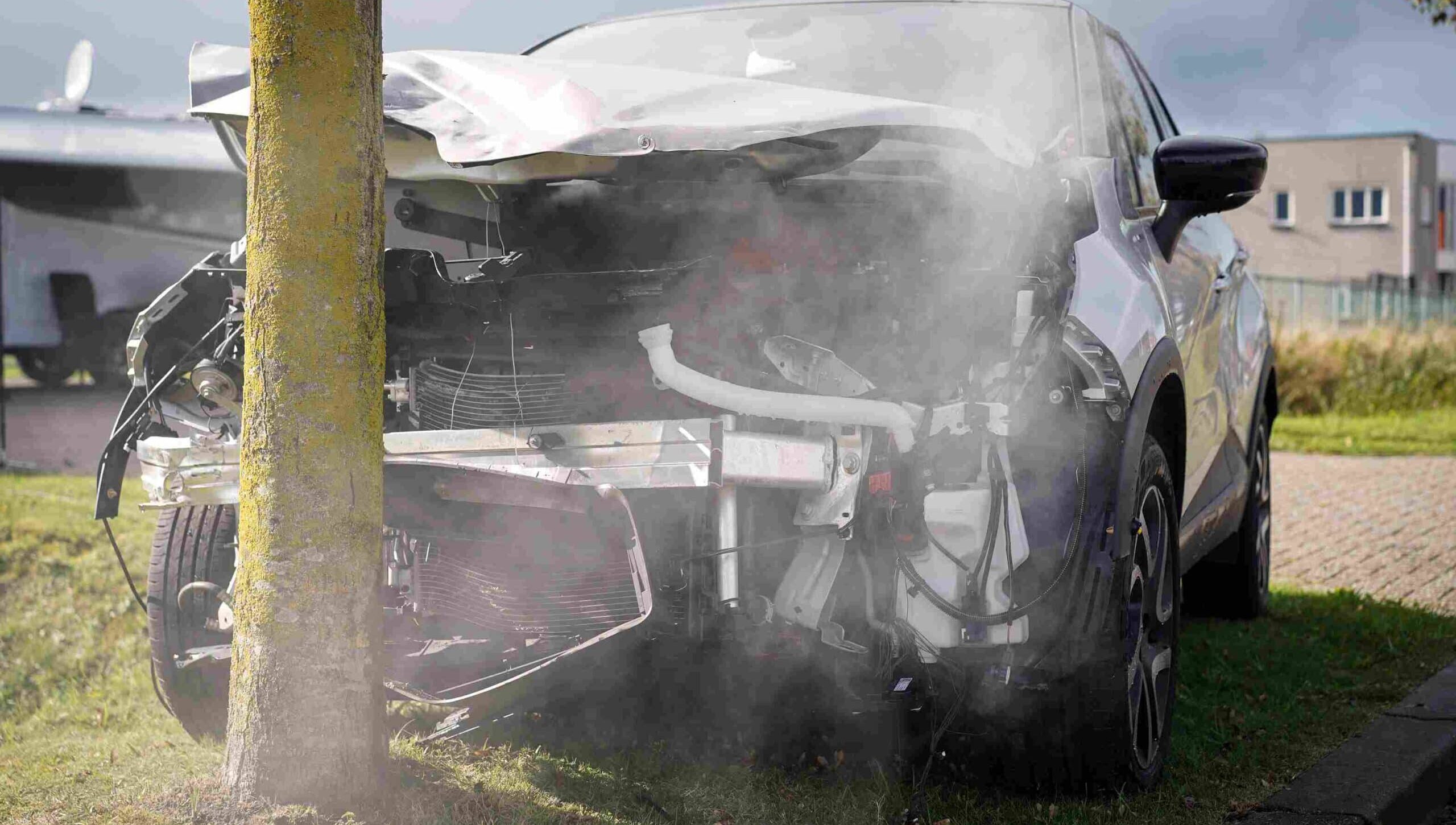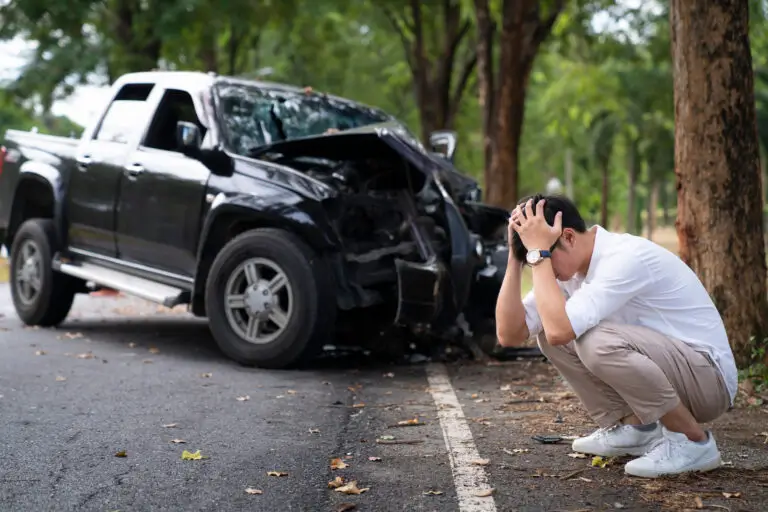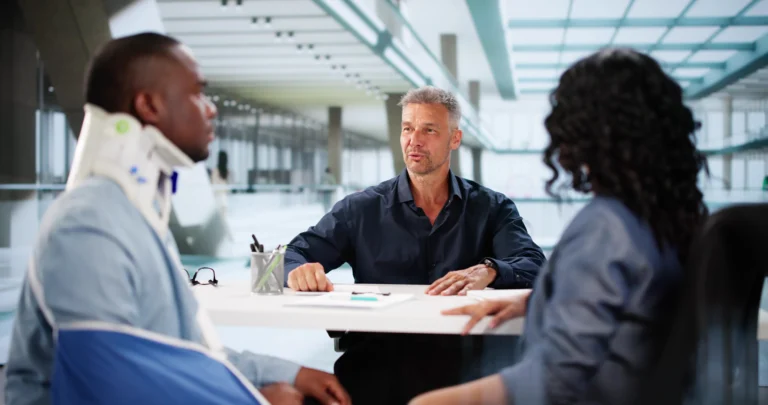When you’re involved in a car accident, the aftermath can be overwhelming. Medical bills pile up, workdays are missed, and the stress of recovery takes its toll. At this point, you may wonder, what collisions does PIP insurance cover in Virginia?
At The Johnson Injury Firm, we understand the challenges you face, especially when navigating insurance claims. One crucial aspect of auto insurance in Virginia is Personal Injury Protection (PIP). While Virginia doesn’t require PIP, many drivers confuse it with Medical Payments Coverage (MedPay), a similar but optional benefit in the Commonwealth.
Here, you can learn more about what PIP is, what kinds of collisions it covers, how Virginia handles these claims, and what role a Richmond personal injury lawyer can play in helping you recover after a crash.
What Is Personal Injury Protection (PIP)?
PIP is an extension of auto insurance found in no-fault states that helps cover medical expenses, lost wages, and funeral costs, regardless of who caused the accident. It’s designed to provide immediate support after a crash, allowing accident victims to access medical treatment without delay.
In many states, PIP is mandatory. However, Virginia does not require PIP. Instead, Virginia drivers may purchase Medical Payments Coverage (MedPay), which is similar to PIP but typically covers fewer types of damages. Still, the logic and structure behind the coverage is comparable.
What Is MedPay and How Does It Relate?
Virginia operates under a fault-based insurance system, which means the driver responsible for the accident typically pays for the damages. But MedPay offers an added safety net. It covers:
- Immediate medical expenses
- Health insurance deductibles
- Emergency transport
- Some funeral expenses
Unlike PIP, MedPay does not cover lost wages or essential services, such as childcare or housecleaning, resulting from an injury. However, it’s still a powerful tool when used strategically after a collision, especially if your health insurance is limited.
What Collisions Does PIP or MedPay Cover?
Coverage depends more on the nature of your injuries and the presence of MedPay in your policy rather than the type of collision. That said, let’s look at how PIP or MedPay typically applies in different accident types.
Rear-End Collisions
Rear-end collisions are one of the most frequent types of accidents in Richmond. Whether you were stopped at a red light or stuck in traffic on I-95, a sudden jolt can result in whiplash, concussions, or spinal injuries. If you carry MedPay, it can help cover your medical costs immediately, without waiting for an at-fault determination.
Side-Impact Crashes
These crashes often happen at intersections when one driver fails to yield. Injuries can range from broken bones to internal organ trauma. Because fault may be unclear at first, MedPay or PIP-like coverage can ensure you aren’t left in financial limbo while insurers investigate.
Head-On Collisions
Head-on crashes are rare but devastating. If you’re hit head-on, chances are you’re dealing with significant injuries. With MedPay, you can receive assistance with paying for ambulance rides, emergency surgery, or physical therapy immediately.
Rollover Accidents
Single-vehicle rollover accidents can be terrifying. Even if no other driver is involved, your medical bills don’t disappear. MedPay can cover injuries you sustain when you lose control due to weather, debris, or mechanical failure.
Hit-and-Run Accidents
If another driver hits you and flees, MedPay may step in to fill the gap, especially if you lack uninsured motorist coverage. This ensures you still get the care you need while pursuing legal options.
Pedestrian and Bicycle Accidents
PIP or MedPay coverage can also apply if you’re struck while walking or riding your bike. According to the Virginia DMV, pedestrian fatalities are on the rise, making coverage like this more critical than ever. Always review your policy’s language—many drivers are unaware that MedPay coverage extends to incidents outside the car.
Does PIP Cover Collisions with Objects?
Yes, Personal Injury Protection (PIP)—or in Virginia, its alternative Medical Payments Coverage (MedPay)—can cover injuries sustained in collisions with stationary objects. These types of accidents, often referred to as single-vehicle crashes, are more common than many drivers realize. Whether you veer off the road and strike a guardrail, utility pole, tree, or parked vehicle, PIP or MedPay coverage can help pay for the medical expenses resulting from your injuries.
Even when another vehicle isn’t involved, the consequences of these collisions can be severe. Drivers may suffer from whiplash, fractures, concussions, or internal injuries, particularly if the crash happens at high speed or involves rollover impact. Pedestrians, cyclists, and motorcyclists are especially vulnerable in such collisions and may need immediate medical attention.
The key advantage of PIP or MedPay coverage in these scenarios is that it doesn’t require proof of fault. That means you can receive reimbursement for ambulance services, hospital stays, X-rays, and physical therapy without having first to demonstrate that someone else caused the accident. This fast access to benefits can make a significant difference in recovery and financial stability.
It’s important to note, however, that this coverage only applies to medical expenses, not to the damage done to your vehicle or surrounding property. If you hit a fence, mailbox, or building, you’ll need to use collision coverage or property damage liability insurance to address those repairs.
As Richmond personal injury lawyers, we’ve helped many clients recover after single-vehicle accidents. If you’re unsure what your policy covers—or if your claim has been denied—contact our personal injury law firm in Richmond for guidance. We can help you determine your rights and maximize the benefits available to you.
What Isn’t Covered by PIP or MedPay?
Understanding the limitations of your coverage is as important as knowing what it provides. Here’s what’s not covered:
- Damage to your vehicle or another’s
- Pain and suffering or emotional distress
- Lost wages (only PIP, not MedPay, may cover this in other states)
- Legal fees associated with filing a lawsuit
- Injuries sustained while committing a crime or racing
For these damages, you’ll need to file a third-party claim against the at-fault driver or pursue compensation through a personal injury lawsuit.
Virginia’s Insurance Requirements and Recent Changes
As of July 1, 2024, all Virginia drivers must carry minimum liability coverage, a departure from the state’s former option to pay a $500 uninsured motorist fee. According to Virginia Senate Bill 951, this reform was designed to increase accountability and reduce the number of uninsured drivers on the road.
Minimum required coverage includes:
- $30,000 for injury/death to one person
- $60,000 for injury/death to two or more people
- $20,000 for property damage
However, these minimums often fall short. We strongly advise clients to consider optional MedPay, uninsured/underinsured motorist coverage, and collision insurance to provide comprehensive protection.
How a Richmond Personal Injury Lawyer Helps
Working with a skilled legal team can significantly improve the outcome of your case. As a personal injury law firm in Richmond, we help clients:
- Understand the fine print of their insurance policies
- File MedPay claims correctly
- Challenge claim denials or delays
- Seek full compensation from negligent drivers
- Navigate negotiations with stubborn insurance companies
When you’re injured, time is of the essence. We act quickly to secure your benefits and build a strong foundation for your personal injury claim. Our experience as accident lawyers in Richmond, VA, allows us to anticipate insurance tactics and respond accordingly.
Statute of Limitations for Personal Injury Claims in Virginia
In Virginia, you typically have two years from the date of the accident to file a personal injury lawsuit. This deadline applies whether you were a pedestrian, bicyclist, driver, or passenger. If you fail to file within this window, you may lose your right to recover compensation altogether.
There are exceptions, such as for minors or certain cases involving government vehicles, so it’s crucial to consult with an accident attorney in Richmond as soon as possible.
Frequently Asked Questions (FAQ)
1. Does Virginia have Personal Injury Protection (PIP)?
Virginia does not offer traditional PIP as seen in no-fault states. Instead, drivers can purchase optional Medical Payments Coverage (MedPay), which provides similar benefits for covering medical bills regardless of who is at fault.
2. What is the difference between MedPay and PIP?
PIP often covers lost wages and essential services, while MedPay focuses only on medical expenses. PIP is common in no-fault states; MedPay is the Virginia alternative for early medical bill relief.
3. Does MedPay cover injuries to my passengers?
Yes. If you purchased MedPay, your passengers are typically covered under your policy for accident-related medical costs.
4. Will using MedPay raise my insurance premium?
Not necessarily. Since MedPay is a no-fault benefit, filing a claim does not automatically result in an increase in your rates. However, your insurer may consider your overall claim history when adjusting rates.
5. Can I use MedPay if I have health insurance?
Yes. MedPay can be used in conjunction with health insurance to cover deductibles, co-payments, or out-of-network costs. Some policies pay the provider directly, while others reimburse you.
6. What happens if my injuries exceed my MedPay limits?
If your costs exceed the coverage, you may need to file a third-party claim against the at-fault driver’s liability insurance or pursue a personal injury lawsuit.
7. How long do I have to file a MedPay claim?
Most insurance providers require you to notify them of an accident and file a MedPay claim within 30 days. Review your specific policy for deadlines.
8. How much MedPay coverage should I carry?
Coverage amounts vary, but many drivers choose $5,000–$10,000. Higher limits can provide more security, especially if your health insurance has high deductibles.
What Does PIP Insurance Cover in Virginia?
If you’ve been hurt in an accident and are unsure how to cover your medical expenses, we’re here to help. At The Johnson Injury Firm, our Richmond personal injury lawyers will review your insurance, explain your rights, and fight to maximize your recovery.
As a personal injury law firm in Richmond, no one should have to navigate these challenges alone. Whether you’re dealing with a minor fender bender or a life-altering collision, contact us for a complimentary consultation. We’ll stand with you every step of the way.





